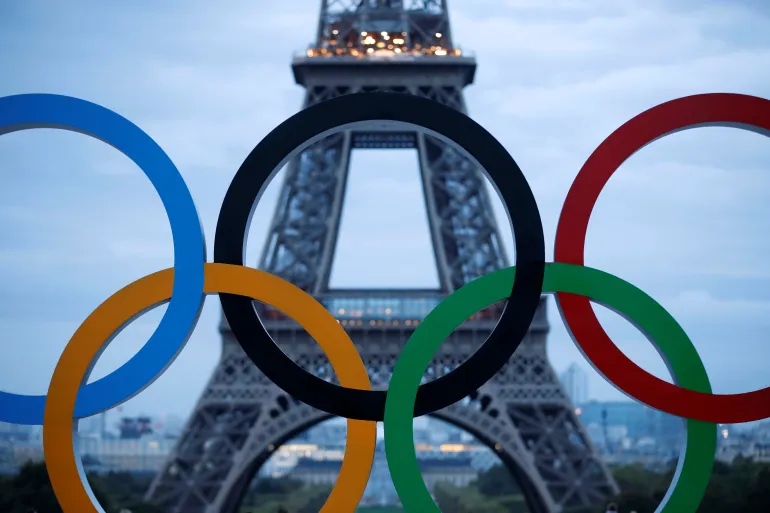Ukrainian athletes to suffer from government ban: IOC

The International Olympic Committee has criticised Ukraine’s decision not to allow Ukrainian athletes to take part in qualifying events for the 2024 Paris Olympics if they have to compete against Russians, saying this will hurt only Ukrainian sport and its athletes.
Ukrainian government minister Oleh Nemchinov announced the policy on Friday after the IOC issued recommendations on Tuesday for the gradual return to international competition for Russian and Belarusian athletes as neutrals.Read More : China keeps virus at bay at high cost ahead of Winter Olympics Athletes from the two countries have been banned from most elite international sporting competitions since March 2022 following Russia’s invasion of Ukraine the previous month.
“If implemented, such a decision would only hurt the Ukrainian athlete community, and in no way impact the war that the world wants to stop, and that the IOC has so vehemently condemned,” the Olympic body said in a statement on Saturday.
“The IOC has always maintained that it is not up to governments to decide which athletes can participate in which international competitions.”
Nemchinov, secretary of Ukraine’s cabinet ministers, said the government’s decision was adopted following a proposal by Sports Minister Vadym Huttsait and national federations ignoring the ruling could be sanctioned. Huttsait is also president of Ukraine’s Olympic committee.
The IOC is to make a separate decision on the participation of Russian and Belarusian athletes at the Paris Games at a later date. Ukraine has threatened to boycott the games if Russians are allowed to compete there.
“Due to the fact that there are unfortunately far too many wars, armed conflicts and crises in this world, we have seen in almost all editions of the Games athletes compete with each other despite the fact that their nations are at war or in conflict,” the IOC said.
The IOC is reluctant to exclude Russians and Belarusians from Paris out of concern about a return to the Olympic boycotts of the Cold War era.
The body set out a pathway in January for them to earn Olympic slots through Asian qualifying events for the 2024 Games to compete as neutral athletes, without flags or anthems.
Some federations have readmitted Russians and Belarusians in competitions but there is also considerable opposition to the IOC’s plans from athletes and some European governments.
Earlier this week a hard-hitting letter by more than 300 past and present fencers accused IOC President Thomas Bach – himself an Olympic gold medal-winning fencer – and interim fencing federation President Emmanuel Katsiadakis of prioritising Russians over Ukrainians.
“You have chosen Russian and Belarusian interests over the rights of athletes, notably Ukrainian athletes, and by doing so, you are failing to support the very people your organisations are meant to support,” the letter said.
Ukrainian government minister Oleh Nemchinov announced the policy on Friday after the IOC issued recommendations on Tuesday for the gradual return to international competition for Russian and Belarusian athletes as neutrals.
“If implemented, such a decision would only hurt the Ukrainian athlete community, and in no way impact the war that the world wants to stop, and that the IOC has so vehemently condemned,” the Olympic body said in a statement on Saturday.
“The IOC has always maintained that it is not up to governments to decide which athletes can participate in which international competitions.”
Nemchinov, secretary of Ukraine’s cabinet ministers, said the government’s decision was adopted following a proposal by Sports Minister Vadym Huttsait and national federations ignoring the ruling could be sanctioned. Huttsait is also president of Ukraine’s Olympic committee.
The IOC is to make a separate decision on the participation of Russian and Belarusian athletes at the Paris Games at a later date. Ukraine has threatened to boycott the games if Russians are allowed to compete there.
“Due to the fact that there are unfortunately far too many wars, armed conflicts and crises in this world, we have seen in almost all editions of the Games athletes compete with each other despite the fact that their nations are at war or in conflict,” the IOC said.
The IOC is reluctant to exclude Russians and Belarusians from Paris out of concern about a return to the Olympic boycotts of the Cold War era.
The body set out a pathway in January for them to earn Olympic slots through Asian qualifying events for the 2024 Games to compete as neutral athletes, without flags or anthems.
Some federations have readmitted Russians and Belarusians in competitions but there is also considerable opposition to the IOC’s plans from athletes and some European governments.
Earlier this week a hard-hitting letter by more than 300 past and present fencers accused IOC President Thomas Bach – himself an Olympic gold medal-winning fencer – and interim fencing federation President Emmanuel Katsiadakis of prioritising Russians over Ukrainians.
“You have chosen Russian and Belarusian interests over the rights of athletes, notably Ukrainian athletes, and by doing so, you are failing to support the very people your organisations are meant to support,” the letter said.
Source: www.aljazeera.com
